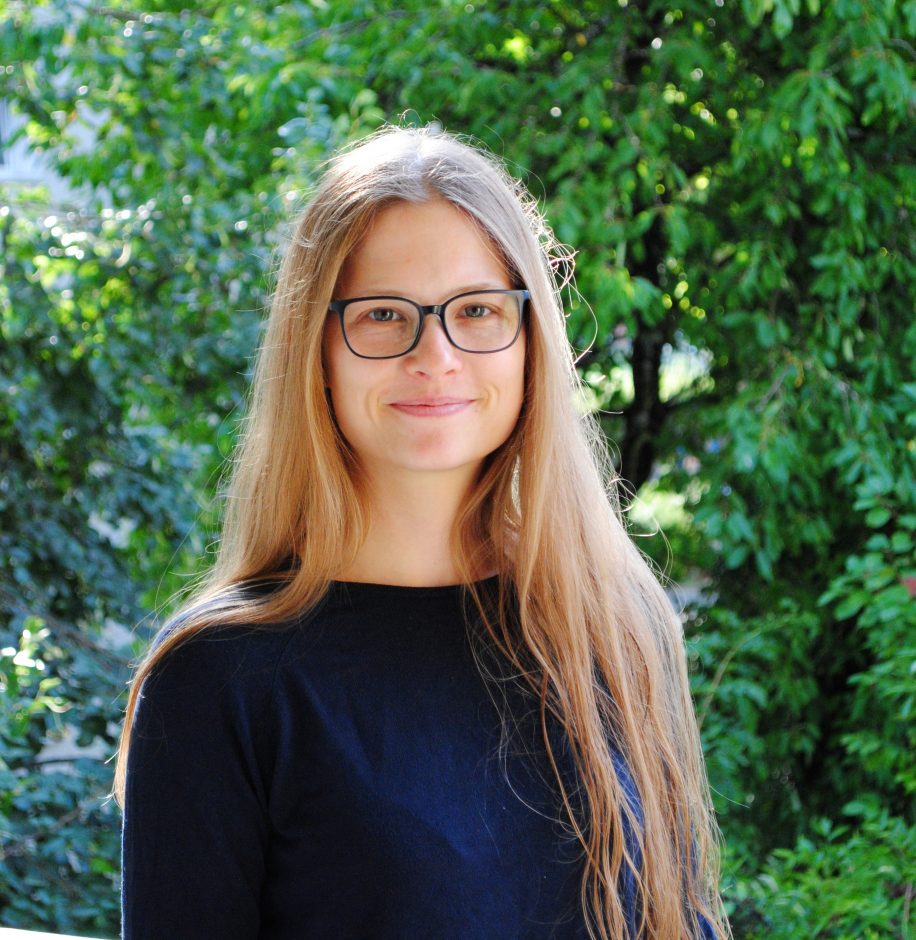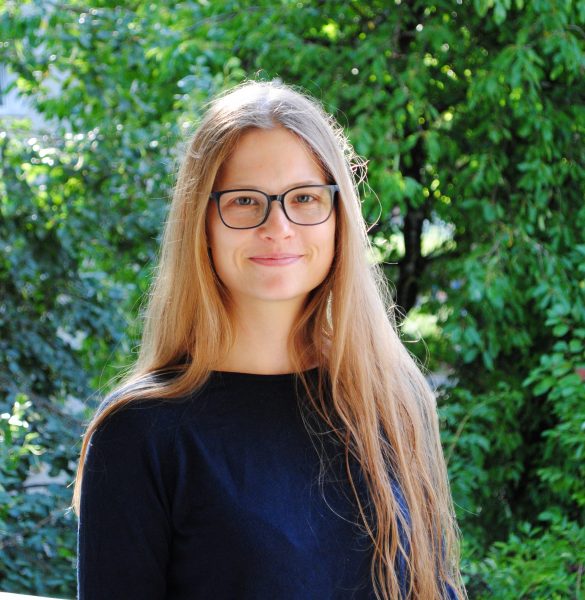Interview with PlanetS Alumni – Caroline Haslebacher

A nice anecdote she shared with us? “I am the kind of person who asks what the ‘S’ in PlanetS stands before even officially becoming a member.”
Dr. Caroline Haslebacher is passionate about fractures in Europa’s ice shell and applies deep learning models to study them. She graduated with a PhD in Physics from the University of Bern. Currently, she is expanding her research on an SNSF Postdoc Mobility fellowship at the Southwest Research Institute in Boulder (Colorado, USA). As a science team member of NASA’s Europa Clipper, she is very excited about this mission.

What inspired you to pursue your current career? How did the experience at PlanetS influence your choice?
Driven by my curiosity, I was always drawn to a scientific career. During my PhD with PlanetS, I experienced that the field of planetary science, astronomy, and astrophysics is supportive, constructive, and wonderfully rich, from which the dream emerged to pursue an academic career. I am impressed by the wealth of discoveries that emerge out of collaborations within the PlanetS network, and being in the US makes me realize how influential PlanetS is to this day.
Did you apply for and get a specific grant? If so, how was the experience?
I applied for the SNSF Postdoc.Mobility grant, which gave me the freedom to choose any host institution. I began thinking about potential projects during my 3rd PhD year (the project planning workshop offered by PlanetS helped me with this!) and submitted the application 8 months before graduating, which allowed me to focus on my thesis afterwards. Waiting for the result was stressful for me, even though there was enough time to carve out plan B if need be. In the end, I was overwhelmed and happy when I learned that my proposal was accepted.
What do you miss from your time at PlanetS?
The direct exchange with scientists across Switzerland. However, the valuable network I gained from my time at PlanetS, for example from lively chats during the yearly general assembly or the JURA, I will keep for my whole career. I also miss the opportunity of dedicated workshops that PlanetS offered, for example for navigating PhD life, proposal writing, and creating professional figures.
What do you enjoy most and least about your current job? What keeps you motivated?
I enjoy being at the forefront of planetary research by being involved in exciting missions, such as NASA’s Europa Clipper. I love to pose curious questions and find or develop the best methods to answer them or at least weigh in on an answer. The increased competitiveness when climbing the academic ladder can be quite stressful. However, seeing the direct impact of my work, for example by mentoring summer interns, keeps me highly motivated.
How do you see your current work making a broader impact?
The longer my published work is out there (freely accessible, which is important to both me and PlanetS), the more fruit it bears. For example, the deep learning model I developed led to a collaboration with a group from Brazil, and a news article in the Berner Zeitung about my involvement in the Europa Clipper mission encouraged a 14-year-old girl curious about Physics to reach out to me for a private future day (Zukunftstag).
Categories: News, Uncategorized, user_portrait
